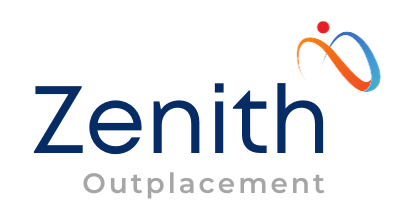In today’s fast-paced and ever-changing world, the ability to adapt and bounce back from setbacks is becoming increasingly essential. The concept of resilience has gained significant attention as individuals face career transitions and navigate the challenges of professional life.
Resilience refers to the capacity to recover quickly from difficulties and adapt to change, enabling individuals to maintain their well-being and performance. In this article, we will delve into the importance of resilience in dealing with career transitions and provide insights and practical tips on how individuals can develop resilience skills to adapt to change and bounce back from setbacks.
Understanding Resilience
Resilience is not an inherent trait that some individuals possess while others do not. It is a skill that can be developed and honed over time. At its core, resilience involves having a positive mindset, being adaptable, and possessing the ability to manage stress effectively. Resilient individuals are better equipped to cope with the uncertainties and challenges that come with career transitions, enabling them to thrive in the face of change.
Importance of Resilience in Career Transitions
Coping with Uncertainty: Career transitions often involve stepping into the unknown, leaving familiar routines and venturing into new territories. Resilience helps individuals navigate uncertainty by fostering adaptability and a willingness to embrace change.
Managing Setbacks: Setbacks are inevitable in any career transition. They can range from rejection letters to unsuccessful job interviews. Resilience allows individuals to bounce back from these setbacks, learn from them, and keep moving forward, rather than getting stuck in a cycle of self-doubt and negativity.
Enhancing Well-being: Career transitions can be stressful, causing emotional strain and affecting overall well-being. Resilience equips individuals with the tools to manage stress, maintain a positive outlook, and protect their mental and emotional health during these challenging times.
Seizing Opportunities: Resilient individuals are more likely to recognize and seize opportunities that arise during career transitions. They have a growth mindset, viewing obstacles as opportunities for personal and professional development.
Developing Resilience Skills
Now that we understand the importance of resilience in career transitions, let’s explore some practical tips on how to develop resilience skills.
Cultivate a Positive Mindset: A positive mindset is the foundation of resilience. Train yourself to focus on the positives, reframe negative experiences as learning opportunities, and practice gratitude for the things you have accomplished. Developing a habit of positive self-talk can significantly boost your resilience.
Build a Supportive Network: Surround yourself with a strong support system. Seek out mentors, friends, or colleagues who can provide guidance, encouragement, and a listening ear during times of change. Sharing your experiences and concerns with others can alleviate stress and provide valuable insights.
Embrace Change: Embracing change is crucial for developing resilience. Instead of resisting or fearing change, view it as an opportunity for growth and self-discovery. Cultivate a mindset that welcomes new experiences and challenges, knowing that they can lead to personal and professional advancement.
Develop Problem-Solving Skills: Resilient individuals are skilled problem solvers. Enhance your problem-solving abilities by breaking down challenges into smaller, manageable tasks. Identify potential solutions, evaluate their pros and cons, and take action accordingly. Building problem-solving skills will enable you to approach career transitions with confidence and resourcefulness.
Practice Self-Care: Self-care is essential for maintaining resilience during career transitions. Prioritise activities that promote physical, mental, and emotional well-being. Exercise regularly, practice mindfulness or meditation, engage in hobbies, and ensure you get enough rest and sleep. Taking care of yourself will recharge your energy and enhance your ability to adapt to change.
Learn from Setbacks: Setbacks are valuable learning opportunities. Instead of dwelling on failures or setbacks, reflect on what went wrong and what lessons can be derived from the experience. Embrace a growth mindset that sees setbacks as stepping stones to success and use the newfound knowledge to improve and move forward.
Develop Emotional Intelligence: Emotional intelligence, or EQ, is the ability to understand and manage one’s emotions and effectively navigate social interactions. Developing EQ skills enables individuals to communicate effectively, build strong relationships, and navigate the complexities of career transitions with resilience and grace.
Set Realistic Goals: Setting realistic goals is crucial for maintaining motivation and resilience during career transitions. Break down your larger goals into smaller, achievable milestones, and celebrate each milestone along the way. This approach will help you stay focused, measure progress, and maintain a sense of accomplishment.
Resilience plays a vital role in navigating career transitions successfully. By cultivating a positive mindset, embracing change, developing problem-solving skills, and practicing self-care, individuals can build their resilience and adapt to the challenges and uncertainties that come with career transitions. Remember, resilience is a skill that can be learned and strengthened over time. By developing these skills, individuals can not only bounce back from setbacks but also thrive in times of change, ultimately shaping their careers in a positive and fulfilling manner.
